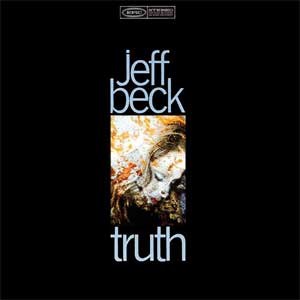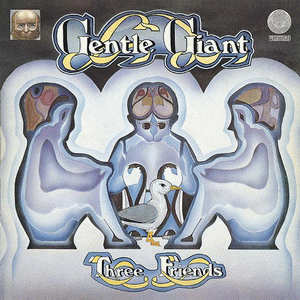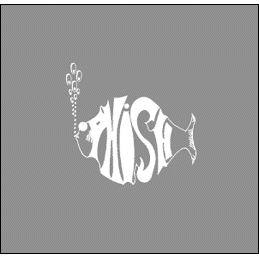Related Research Articles

Multitrack recording (MTR), also known as multitracking or tracking, is a method of sound recording developed in 1955 that allows for the separate recording of multiple sound sources or of sound sources recorded at different times to create a cohesive whole. Multitracking became possible in the mid-1950s when the idea of simultaneously recording different audio channels to separate discrete "tracks" on the same reel-to-reel tape was developed. A "track" was simply a different channel recorded to its own discrete area on the tape whereby their relative sequence of recorded events would be preserved, and playback would be simultaneous or synchronized.

Gentle Giant were a British progressive rock band active between 1970 and 1980. The band were known for the complexity and sophistication of their music and for the varied musical skills of their members. All of the band members were multi-instrumentalists. Although not commercially successful, they did achieve a cult following.

Truth is the debut studio album by English guitarist Jeff Beck, released on 29 July 1968 in the United Kingdom on Columbia Records and in the United States on Epic Records. It introduced the talents of his backing band the Jeff Beck Group, specifically Rod Stewart and Ronnie Wood, to a larger audience, and peaked at number 15 on the Billboard 200.

"Cry Baby Cry" is a song by the English rock band the Beatles from their 1968 double album The Beatles. It was written by John Lennon and credited to the Lennon–McCartney partnership. The coda of the song is a short segment referred to as "Can You Take Me Back", written by Paul McCartney, which was actually an outtake from the "I Will" session.

Three Friends (1972) is the third album by British progressive rock band Gentle Giant. It was the band's first release to chart in America, peaking at #197 on the Billboard 200. It is the only album by Gentle Giant to feature drummer Malcolm Mortimore following the departure of Martin Smith.

Head is the soundtrack to the film Head, the only theatrical release by the Monkees. Released in 1968 through Colgems, it was the band's sixth album. Head was the last Monkees album to feature vocal contributions by Peter Tork until Pool It! in 1987 and the last to feature all four Monkees until 1996's Justus.

Harmony is Canadian singer-songwriter Gordon Lightfoot's 20th studio album. Recorded in 2001 and released in 2004, it reached #35 on the Independent albums chart.
"All I Wanna Do" is a song by the American rock band the Beach Boys from their 1970 album Sunflower. Written by Brian Wilson and Mike Love, the recording's use of layering, reverb and delay effects led it to be retrospectively cited as the earliest example of dream pop and chillwave, as well as a precursor to shoegaze. It was also influential for many lo-fi acts.

"Take It Easy" is a song by the American rock band Eagles, written by Jackson Browne and Eagles band member Glenn Frey, who also provides lead vocals. It was the band's first single, released on May 1, 1972. It peaked at No. 12 on the July 22, 1972, Billboard Hot 100 chart. It also was the opening track on the band's debut album Eagles and it has become one of their signature songs, included on all of their live and compilation albums. It is listed as one of The Rock and Roll Hall of Fame's 500 Songs that Shaped Rock and Roll.

Sincerely is the debut album from the Dwight Twilley Band, released in 1976 on Shelter Records. The band consisted solely of Dwight Twilley and Phil Seymour, although touring band member Bill Pitcock IV played lead guitar on every song except for "Sincerely" itself. The album credited production to Oister, which was the original name of the Dwight Twilley Band; later reissues have credited production directly to Twilley and Seymour.

The Great Lost Twilley Album is a compilation of songs from the Dwight Twilley Band and Dwight Twilley solo, recorded in 1974 through 1980 and released in 1993 on Shelter Records. The basic band consisted of Dwight Twilley, Phil Seymour, and Bill Pitcock IV ; other musicians include Leon Russell, Tom Petty and Susan Cowsill. Most of the production is credited to Twilley and Seymour, although some other producers who worked on songs on the record include Jack Nitzsche, Leon Russell, Robin Cable and Chuck Plotkin.
Rodney Coombes is an English musician. He was mostly known from playing drums with British bands Stealers Wheel in 1972–1973 and later in 2008 and Strawbs from 1974 to 1977 and again from 2004 to 2010.

Phish is a demo album released by the American rock band Phish on cassette in 1986. Often cited as the first Phish "album", The White Tape was originally a collection of original material that the band used as a demo/sample tape for venues, and was sometimes labelled "Phish" or simply "Demo". The album was widely circulated among Phish fans for more than a decade before being officially released in 1998.

The Reason Why is the fourth studio album by American country group Little Big Town. It was released on August 24, 2010 via Capitol Nashville. "Little White Church," which was released in March 2010 as the album's lead-off single, has since become a Top 10 hit on the U.S. Billboard Hot Country Songs chart.
Ernie and the Emperors were a rock band from Santa Barbara, California. They were an example of 1960s rock and pop, influenced by the British Invasion with songs that employed rich harmonies, instrumental hooks, and upbeat lyrics. Their biggest hit was their single "Meet Me At The Corner", a hit for them as Ernie and the Emperors. In later years, they also released materials as The Giant Crab, as Big Brother Ernie Joseph, Faith and as the Brian Faith Band.

DIIV is an American rock band from Brooklyn, New York City, formed in 2011. The band consists of Zachary Cole Smith, Andrew Bailey (guitar), Colin Caulfield and Ben Newman (drums).

Guards are an American three piece rock band. They consist of Richie Follin, Loren Humphrey, and Kaylie Church. They released their debut album, In Guards We Trust, in February 2013.

I'm a Fire is the third studio album by American country music artist David Nail. It was released on March 4, 2014 via MCA Nashville. The album garnered a positive reception from critics praising the production and lyrical content synchronizing with Nail's vocal delivery. I'm a Fire debuted at numbers 3 and 13 on both the Top Country Albums and Billboard 200 charts respectively and spawned two singles: "Whatever She's Got" and "Kiss You Tonight".

My Blood Is Full of Airplanes is the debut album by American indie pop band, The Cinema. Released on September 13, 2011, singles from the album include: "Kill It", "The Wolf", "Say It Like You Mean It", and "Picasso". The album was not released on a physical medium, and could only be acquired through digital music platforms. On May 16, 2011, The Cinema announced the release of its first single, "Kill It". In addition to the new track, the band also released an introduction video via their YouTube page. On May 20, 2011, The Cinema posted a clip of their second single, "The Wolf", on their Facebook page. They also announced plans to release a full version of the track on Tuesday, May 22, 2011. On May 25, 2011, AbsolutePunk reported that both singles were available for purchase through the iTunes store. On May 31, 2011, The Cinema released its third single titled "Say It Like You Mean It", and the track was available for download on iTunes the same day. The band released its forth and final single titled "Picasso" on July 28, 2011.

"Get Me to the World on Time" is a song written by Annette Tucker and Jill Jones for the American garage rock band, The Electric Prunes. The song was released in May 1967 following the success of the band's previous single, "I Had Too Much to Dream ". Although the follow-up did not have the same success, "Get Me to the World on Time" still charted at number 27 on the Billboard Hot 100. The single also fared slightly better in the UK, where it reached number 42.
References
- 1 2 3 4 Gardner, James A. (24 October 2012). "Music Review: Giant Crab - A Giant Crab Comes Forth". Blogcritics. Retrieved 25 February 2013.
- 1 2 3 4 A Giant Crab Comes Forth 33 1/3 rpm LP back cover (Media notes). Giant Crab (artist). Hollywood, California: Universal City Records. 1968.
{{cite AV media notes}}: CS1 maint: others in cite AV media (notes) (link) - ↑ "Giant Crab Comes Forth, A" . Retrieved 25 February 2013.